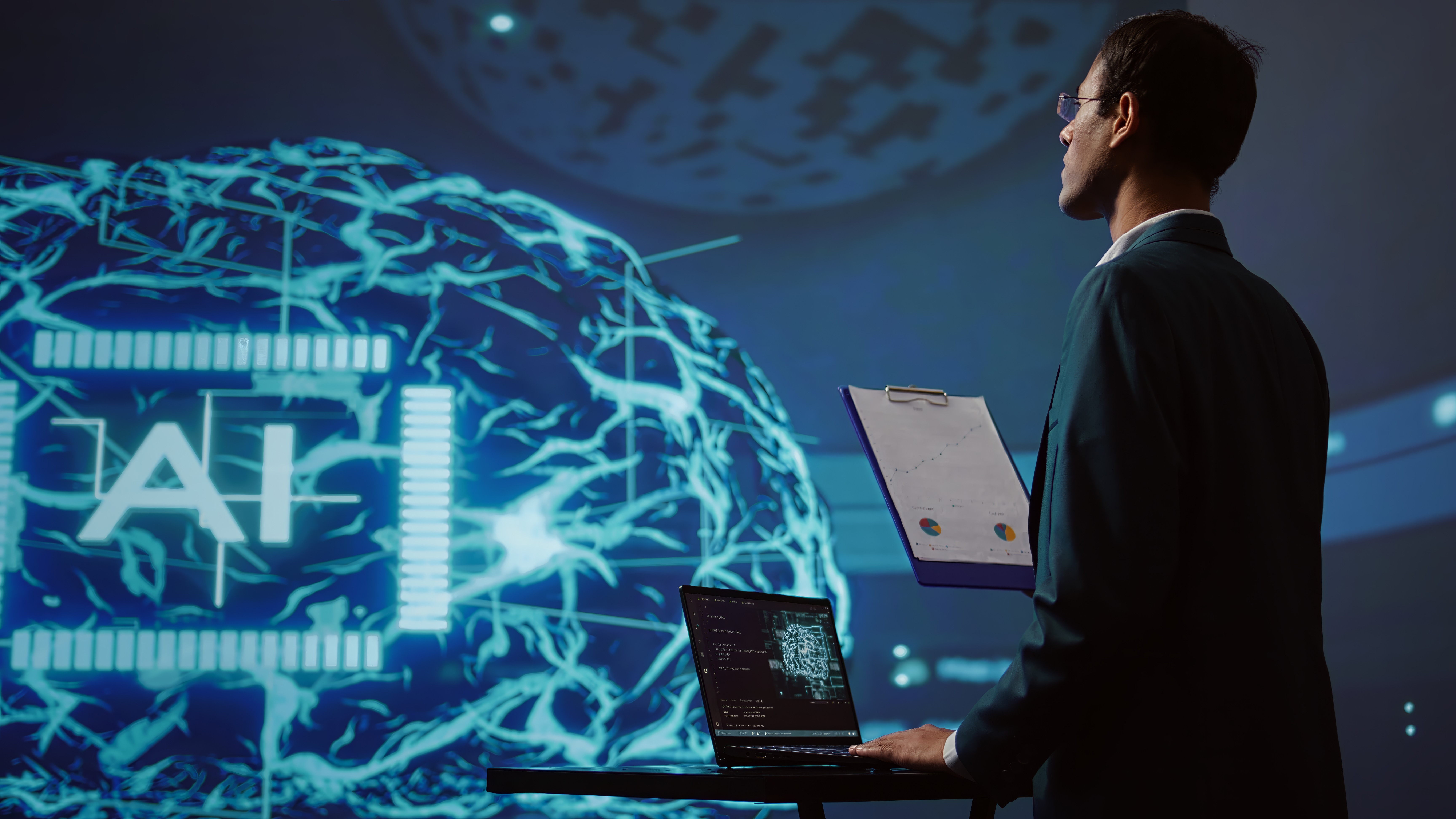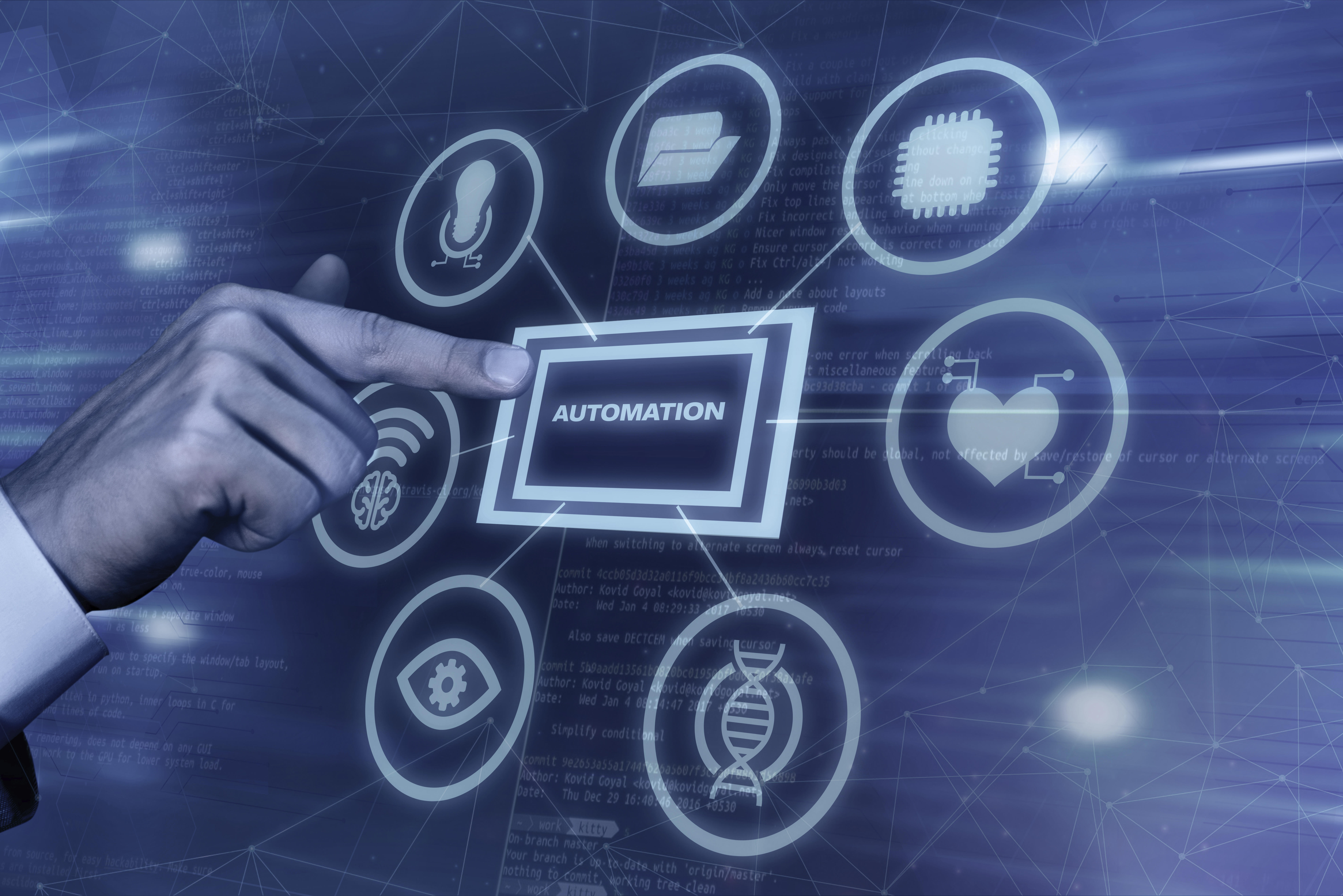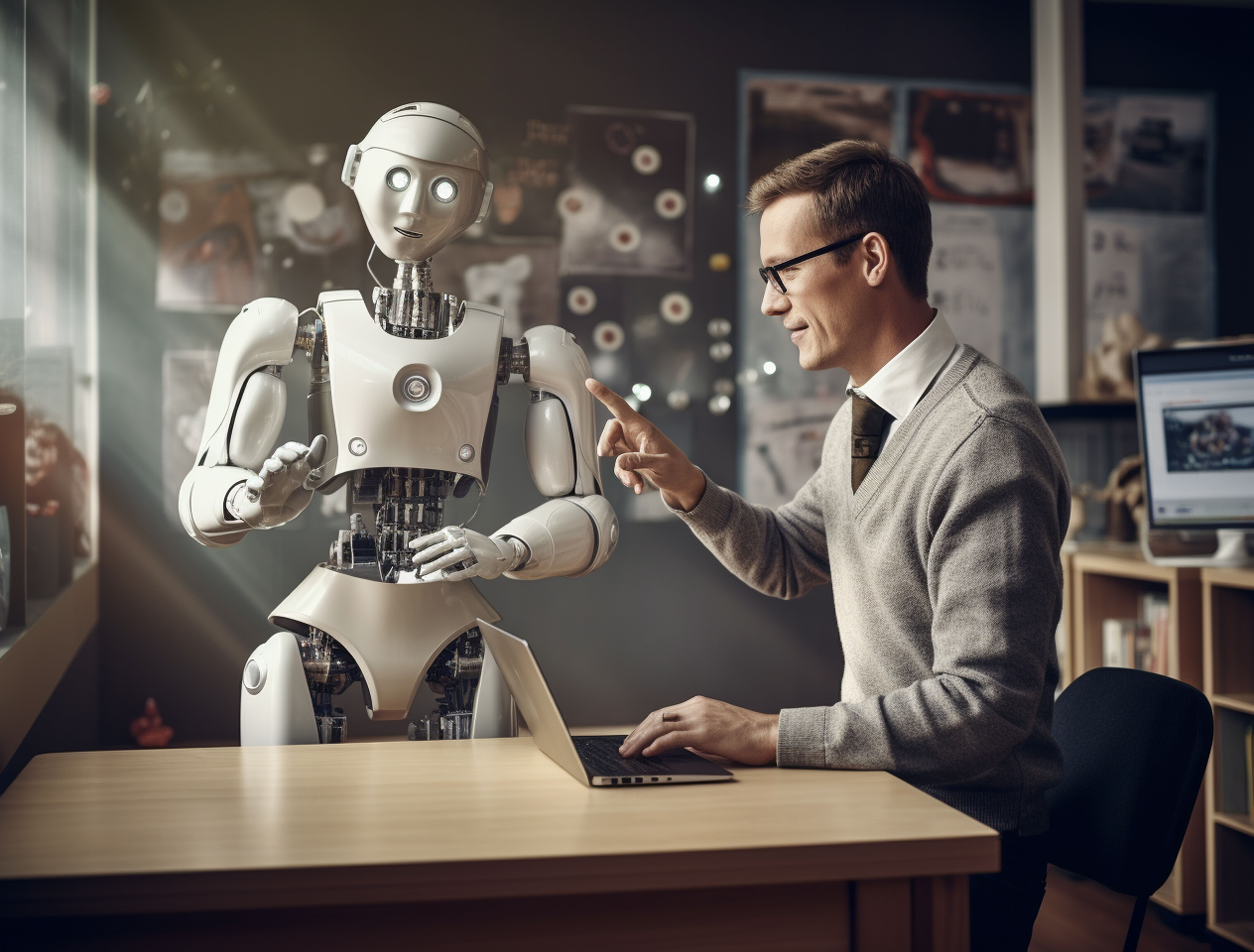Artificial Intelligence and Stock Trading: A Complete Guide
What is Artificial Intelligence and Stock Trading?
Artificial Intelligence (AI) refers to the simulation of human intelligence processes by machines, particularly computer systems. These processes include learning, reasoning, problem-solving, and decision-making. AI is often powered by machine learning algorithms, which allow systems to improve over time by analysing vast amounts of data and identifying patterns. As technology evolves, AI systems have become more sophisticated, enabling them to handle complex tasks in various industries, including finance.
AI has revolutionized the financial market by providing tools that enhance decision-making and operational efficiency. In stock trading, AI models analyses market data, identify trends, and predict price movements with incredible accuracy. These models can process vast quantities of information—such as historical prices, trading volumes, and even social media sentiment—faster than any human trader. AI’s ability to work in real-time allows investors to capitalize on market opportunities instantly, providing a competitive edge in fast-moving markets.
Why is AI Gaining Popularity in Stock Trading?
The increasing popularity of AI in stock trading can be attributed to several factors. First, AI-powered systems can perform tasks such as risk management, portfolio optimization, and algorithmic trading with speed and precision that human traders cannot match. This helps investors make informed decisions based on data-driven insights, reducing the potential for human error. Additionally, AI can adapt to changing market conditions, learning from new data and adjusting its strategies accordingly.
How Does AI Work in Stock Trading?
Key Technologies Used in AI for Stock Trading
Artificial intelligence (AI) in stock trading relies on various key technologies that empower algorithms to analyses large datasets and make predictions. One of the primary technologies is machine learning (ML), where models are trained using historical market data to identify patterns and trends. Natural language processing (NLP) is another crucial technology, as it enables AI systems to understand and process textual data, such as news articles or social media posts, which can influence market sentiment. Additionally, AI systems in trading often use big data analytics to process vast amounts of information from diverse sources, enhancing their ability to predict market movements and execute trades efficiently.
Machine Learning Algorithms
Machine learning algorithms are at the core of AI in stock trading. These algorithms enable AI models to automatically learn from historical data and improve their performance over time. Supervised learning, for example, uses labelled data to train the model, while unsupervised learning allows the AI to identify hidden patterns in data without predefined labels. Reinforcement learning is also widely used in trading systems, where the algorithm learns by interacting with the environment and receiving feedback in the form of rewards or penalties based on its actions. Machine learning algorithms help in predicting stock prices, optimizing trading strategies, and detecting potential risks.
Neural Networks and their Role in Market Prediction
Neural networks, inspired by the human brain’s structure, are a fundamental component of AI-driven stock trading. These networks consist of interconnected nodes, or neurons, that process information in layers. When applied to stock trading, neural networks can recognize complex patterns in large volumes of market data, such as stock prices, trading volume, and macroeconomic indicators. By training on historical data, these networks can forecast market trends and price movements with remarkable accuracy. Their ability to adapt to new data and adjust predictions in real-time makes neural networks an essential tool for AI in stock trading.
What is Stock Market Prediction?
Stock market prediction refers to the process of forecasting future stock prices or trends based on historical data, patterns, and various market indicators. Traders and investors use predictions to inform their decisions and gain insights into potential opportunities. Traditional stock market prediction methods often involve fundamental analysis, technical analysis, or a combination of both. However, with the advent of artificial intelligence, predicting stock market movements has become more data-driven and precise, leveraging advanced algorithms and machine learning models.
Types of Predictions: Short-term vs. Long-term
Stock market predictions can be divided into two primary categories: short-term and long-term predictions.
- Short-term predictions generally focus on predicting market movements over a few minutes, hours, or days. These predictions are often based on real-time data, including price fluctuations, trading volumes, and news events. AI models are used to detect immediate patterns and provide insights for day traders or those engaging in high-frequency trading.
- Long-term predictions focus on forecasting market trends over months or years. These predictions consider broader market forces, including economic indicators, company performance, and global events. Long-term predictions typically involve more complex AI models that analyses historical data over an extended period to make informed projections.
How Does AI Make Predictions in the Stock Market?
AI stock market prediction relies heavily on advanced machine learning algorithms that analyses vast datasets to identify patterns and trends. These algorithms can process historical market data, financial news, social media sentiment, and even geopolitical events to forecast stock movements. Machine learning models like decision trees, support vector machines (SVMs), and neural networks are trained on historical data to recognize subtle patterns that might elude human traders. AI models also use reinforcement learning to adapt and optimize their strategies based on real-time data and feedback.
What are the Types of AI Algorithms Used in Stock Trading?
Supervised Learning and Its Applications in Trading
Supervised learning is one of the most widely used machine learning techniques in stock trading. In supervised learning, algorithms are trained on labelled datasets, where both input data (such as historical stock prices) and the corresponding correct output (such as future price movements) are provided. The model learns to map inputs to the correct outputs by identifying patterns in the data. In stock trading, supervised learning is often used for predicting future stock prices, classifying stocks based on risk, and even detecting market anomalies. Models like linear regression, decision trees, and support vector machines (SVMs) are frequently used in supervised learning for making accurate predictions based on historical data.
Unsupervised Learning for Identifying Patterns
Unlike supervised learning, unsupervised learning does not require labelled data. Instead, the algorithm identifies hidden patterns and structures within the data on its own. In stock trading, unsupervised learning is valuable for discovering underlying trends, market clusters, and patterns that may not be immediately apparent. For example, unsupervised algorithms such as k-means clustering or principal component analysis (PCA) can identify correlations between different stocks or market sectors, helping traders to uncover opportunities for diversification or risk management. These algorithms are particularly useful for analysing large datasets with no predefined output, allowing traders to spot emerging trends and make informed decisions based on the patterns discovered.
Reinforcement Learning in Trading Systems
Reinforcement learning (RL) is a powerful AI algorithm used in stock trading systems. Unlike supervised and unsupervised learning, RL involves agents that learn by interacting with their environment. In stock trading, the "environment" is the stock market, and the "agent" is the algorithm that makes decisions (such as buying or selling stocks). The algorithm receives feedback in the form of rewards (profit) or penalties (losses) based on the actions it takes. Over time, the agent learns to optimize its trading strategy to maximize rewards. Reinforcement learning is particularly useful for developing algorithmic trading systems that can adapt to real-time market conditions, continuously learning and improving from experience.
What are the Advantages of Using AI in Stock Trading?
Speed and Accuracy in Decision-Making
In artificial intelligence and stock trading, speed and accuracy are essential. AI systems can process large amounts of data and make decisions within fractions of a second, much faster than a human trader. These systems can identify market trends and execute trades at lightning speed, which is crucial in a market that operates 24/7 and is influenced by constant fluctuations. By analysing data in real-time, AI can provide more accurate predictions and help traders make timely decisions, ensuring they capitalize on market opportunities as soon as they arise.
Reducing Human Error
One of the most significant advantages of AI in trading is its ability to reduce human error. Traders can sometimes make mistakes due to fatigue, emotional biases, or misinterpretation of market signals. AI, however, operates based on data and predefined algorithms, eliminating these human factors. Since AI does not get tired or emotionally invested, its decisions are purely based on analysis and logic. This leads to more consistent and reliable trading outcomes, minimizing the potential for costly mistakes.
Analysing Massive Datasets
The stock market generates vast amounts of data every day, including price movements, trading volumes, news stories, and even social media posts. AI is capable of handling and analysing these massive datasets with ease. Machine learning algorithms can identify hidden patterns, correlations, and trends in data that human traders might miss. By sifting through large amounts of historical and real-time data, AI can help traders make more informed decisions, ultimately leading to better trading strategies and risk management.
Automated Trading and Algorithmic Strategies
AI also enables automated trading and the development of algorithmic trading strategies. These systems can execute trades based on preset rules or adapt to new data without human intervention. AI-powered algorithms can be designed to take advantage of price discrepancies, detect arbitrage opportunities, and optimize portfolio allocations. By automating these processes, traders can increase efficiency, reduce operational costs, and maximize returns while ensuring that trades are executed without delay.
What are the Challenges of AI in Stock Trading?
Risk of Overfitting and Inaccurate Models
One of the primary challenges in artificial intelligence and stock trading is the risk of overfitting. Overfitting occurs when a model becomes too tailored to historical data, capturing even the smallest and most irrelevant details, which can lead to poor performance in real-world trading. While the model may appear to perform well on historical data, it may fail to predict future market trends accurately. This can result in significant financial losses if the model’s predictions do not generalize well to new, unseen data. To mitigate overfitting, AI systems require robust validation techniques and a continual process of model refinement.
The Impact of Market Volatility
Another significant challenge for AI in stock trading is market volatility. Financial markets are often unpredictable and can experience rapid fluctuations due to global events, economic news, or unexpected market shocks. While AI algorithms can analyse historical trends and patterns, they may struggle to adapt quickly to sudden changes in market conditions. In times of extreme volatility, AI models may provide misleading signals or fail to make accurate predictions. As a result, traders must ensure their AI systems are flexible and capable of adjusting to changing market conditions to avoid substantial losses.
Ethical Considerations in AI Trading
The use of AI in stock trading also raises various ethical considerations. One concern is the potential for market manipulation. If AI algorithms are not carefully regulated, they could be used to engage in manipulative practices, such as market spoofing or pump-and-dump schemes. Additionally, the reliance on AI could lead to issues of algorithmic bias, where certain market segments or trading behaviours are unfairly advantaged or disadvantaged. Transparency and fairness in AI algorithms are essential to ensure that they are used ethically and do not undermine market integrity. Furthermore, the potential for widespread job displacement in the financial industry is another ethical concern as more trading tasks become automated.
What are the Real-World Applications of AI in Stock Trading?
Algorithmic Trading and Hedge Funds
One of the most prominent applications of AI stock market prediction is in algorithmic trading used by hedge funds and institutional investors. Algorithmic trading involves using AI algorithms to execute trades automatically based on predefined conditions. These systems analyse vast amounts of historical and real-time data to identify profitable opportunities. Hedge funds leverage these algorithms to enhance trading strategies, optimize portfolio management, and minimize risk. By utilizing AI, hedge funds can process data at a speed and accuracy level that human traders cannot match, enabling them to make quick, informed decisions even in volatile markets.
AI in High-Frequency Trading
AI is also playing a crucial role in high-frequency trading (HFT), where algorithms execute thousands of trades per second. HFT strategies rely on AI to analyses minute market movements and identify arbitrage opportunities, allowing traders to make profits on very small price differences. The speed at which AI systems can react to market changes gives them a competitive edge over traditional trading methods. Since HFT often relies on exploiting very short-term market inefficiencies, AI’s ability to make rapid, data-driven decisions is invaluable in this fast-paced environment. The integration of machine learning in HFT is continually evolving, with AI systems becoming more sophisticated in adapting to market conditions.
Personal AI-Driven Trading Assistants
AI-driven personal trading assistants are becoming increasingly popular among individual investors. These virtual assistants, powered by machine learning and natural language processing, help traders by providing insights, real-time market updates, and automated trading strategies. Personal AI trading assistants can learn from the user’s trading behaviour and preferences, offering customized recommendations and executing trades on their behalf. This technology is democratizing stock trading by allowing retail investors to access tools once reserved for institutional traders. AI-driven assistants also help users manage risk, optimize portfolios, and even predict market movements, making them valuable tools for anyone involved in stock trading.
How to Get Started with AI in Stock Trading?
Building your First AI Model for Stock Prediction
Getting started with AI in stock trading begins with understanding how to build a simple AI model for stock prediction. The first step is to gather historical data of stock prices, trading volumes, and other relevant market factors. This data can be obtained from financial databases like Yahoo Finance or Alpha Vantage. Once you have the data, you can begin by using machine learning techniques, such as linear regression, decision trees, or neural networks, to predict future stock prices based on historical patterns. The model is trained using past data, then tested on unseen data to evaluate its accuracy. With practice, you can refine your model to improve prediction accuracy over time.
Tools and Platforms for Beginners
For beginners, the easiest way to start building AI models is through tools and platforms like Python, TensorFlow, and Keras. Python is widely used in the AI community due to its simplicity and vast array of libraries designed for data analysis and machine learning. Libraries such as Pandas and NumPy allow you to easily manipulate financial data, while Scikit-learn provides a range of machine learning algorithms to get started with stock market predictions. TensorFlow and Keras are popular deep learning frameworks that allow you to build complex neural networks for more advanced predictions. These platforms are well-documented, and many online tutorials are available to help you learn and build your first AI models.
Resources for Learning More About AI in Stock Trading
To deepen your understanding of AI in stock trading, numerous online resources are available. Websites like Coursera and edX offer beginner to advanced courses on machine learning and AI, including specific applications in finance. Books such as "Machine Learning for Asset Managers" by Marcos López de Prado also offer practical insights into using AI for financial trading. Additionally, joining online communities like Kaggle and GitHub can help you connect with other traders and developers, share ideas, and access open-source projects related to AI in stock trading. By actively engaging with these resources, you can improve your skills and start applying AI to real-world trading scenarios.
What is the Future of AI in Stock Trading?
The Evolving Landscape of AI in Finance
The future of AI in stock trading is an exciting one, with rapid advancements in technology reshaping the way financial markets operate. Over the past few years, AI has moved from being a niche tool for institutional investors to a mainstream technology accessible to retail traders. As AI continues to evolve, its role in finance will expand further, making stock trading more efficient, data-driven, and accessible. With the integration of machine learning, natural language processing, and sentiment analysis, traders can expect AI to provide even more accurate predictions and smarter trading strategies in the years to come.
Potential Advancements and New AI Technologies
Looking ahead, several potential advancements in AI could transform stock trading even further. One of the most promising areas is the development of more sophisticated neural networks that can better capture complex market behaviours. These networks will likely integrate a wider variety of data sources, including unstructured data from social media, news articles, and geopolitical events. Moreover, advancements in reinforcement learning may lead to AI systems that not only predict market movements but also make real-time decisions based on live market conditions, optimizing trading strategies as they adapt. Additionally, the use of quantum computing could offer unparalleled computational power, enabling AI systems to analyses vast amounts of financial data and solve complex trading problems faster than ever before.
What Do Traders Need to Know About the Future of AI?
As AI continues to revolutionize stock trading, traders need to stay informed about new developments to remain competitive. It's essential to understand that while AI systems offer significant advantages, they are not infallible. The evolving landscape of AI will bring challenges, including the need for better risk management, algorithm transparency, and regulation. Traders should also keep an eye on ethical issues surrounding AI, such as algorithmic bias and market manipulation risks. Finally, as AI becomes more prevalent, there will be a greater emphasis on combining human expertise with AI-driven insights. Traders who can leverage both will likely have the edge in future stock markets.
Conclusion
In artificial intelligence and stock trading, AI is significantly transforming the way traders approach market predictions and decision-making. With technologies like machine learning, neural networks, and algorithmic trading, AI enhances speed, accuracy, and risk management in trading strategies. If you're interested in ai stock market prediction now is the ideal time to dive deeper into AI. Exploring AI tools and techniques can empower you to optimize your trading methods and make more informed decisions. To stay updated with the latest trends, regularly follow AI and finance news, join relevant online communities, and take courses to continuously improve your knowledge and skills.








